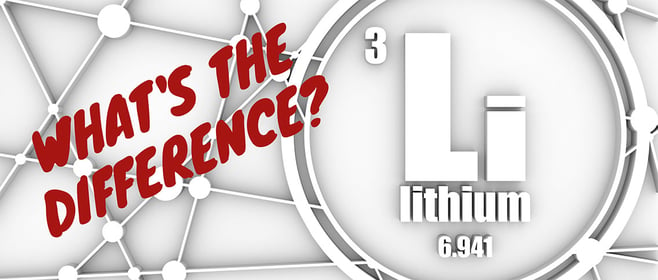 While any network contains numerous pieces of vital equipment, arguably the most vital is your Uninterruptible Power Supply. A UPS hopefully doesn't see much use, but when it's needed, it's the insurance policy which allows your network - and your business - to keep functioning even when primary electrical service is lost.
While any network contains numerous pieces of vital equipment, arguably the most vital is your Uninterruptible Power Supply. A UPS hopefully doesn't see much use, but when it's needed, it's the insurance policy which allows your network - and your business - to keep functioning even when primary electrical service is lost.
It's vital to have a UPS which is there when you need it, while still having minimal ongoing costs of ownership.
For years, most larger UPS units relied on traditional Valve-Regulated Lead Acid (VRLA) batteries. That is, basically the same technology used in car batteries. However, we're finally seeing a major change in UPS batteries. New Lithium Ion Phosphate (LFP) batteries are appearing. These are variations on the same technology as in smartphone batteries, but with vastly higher capacities. They can now hold charges equal to or greater than VRLA cells, and that means almost nothing but good things for the next generation of Uninterruptible Power Supplies.
Why Lithium Ion Batteries Are A Game-Changer For UPSes
Simply put, LFP batteries in UPS systems are going to be superior to VRLA batteries in almost every way, with no real drawbacks aside from higher initial prices. And those prices will undoubtedly come down quickly.
With an LFP battery in your UPS, you get:
1 - Higher capacity
An LFP battery can hold roughly 2x as much power as a VRLA battery of equivalent size. Or, looked at another way, you could also get the same amount of power as a VRLA battery but in a half-sized unit.

They also weigh substantially less as well, which your sysadmin will appreciate!
2 - Faster charging
One of the big benefits to all forms of Lithium-Ion battery is their fast charge times. Even large corporate-level UPS systems with an LFP battery can be fully charged within a couple hours, in most cases. By comparison, VRLA units often need a full 24 hours to recharge!
It's not hard to see how beneficial this could be, in situations such as hurricanes where power becomes unreliable for several days after the storm.
3 - Longer service lives
Anyone who owns a car knows that VRLA batteries can die rather quickly. LFP batteries can handle at least 3x as many charge and discharge cycles, meaning that they can remain in active service for much longer. Some studies suggest they may be able to handle up to 10x as many charge cycles as VRLA! On top of that, LFP batteries are also less adversely affected by heat, which can degrade VRLA batteries.
This all substantially offsets their higher prices, when looked at in terms of long-term ROI.
4 - Green technology
Lead acid batteries are terrible for the environment, and very difficult to dispose of properly. LFP batteries are much easier to recycle, and require less environmental harm to produce as well.
The UPS Batteries Of The Future
 Basically, there's no real down side to using LFP batteries. If you're concerned about safety, don't be. These corporate-grade batteries have multiple checks and protective systems in place to prevent any mishaps. They can't catch fire like some shoddy smartphone batteries can.
Basically, there's no real down side to using LFP batteries. If you're concerned about safety, don't be. These corporate-grade batteries have multiple checks and protective systems in place to prevent any mishaps. They can't catch fire like some shoddy smartphone batteries can.
The first LFP-powered UPS systems are beginning to ship. If you're already looking at upgrading your power protection, this would be a great time to talk to us about the benefits of embracing this new battery technology.










